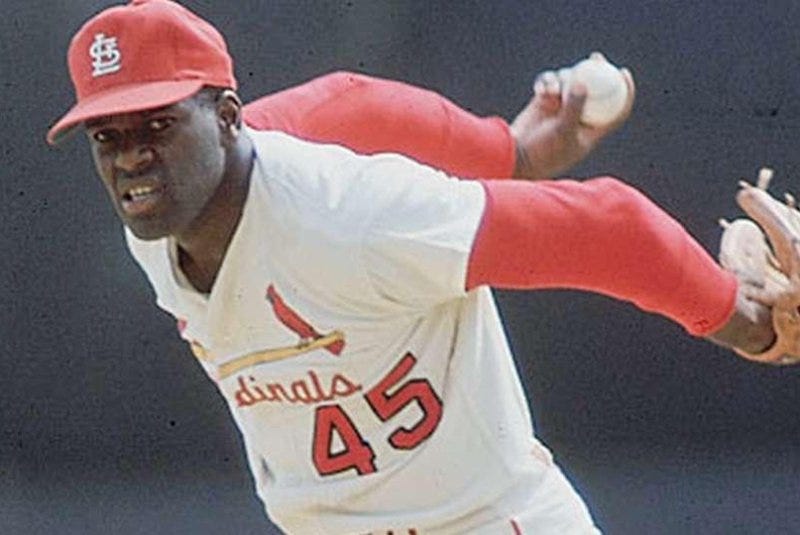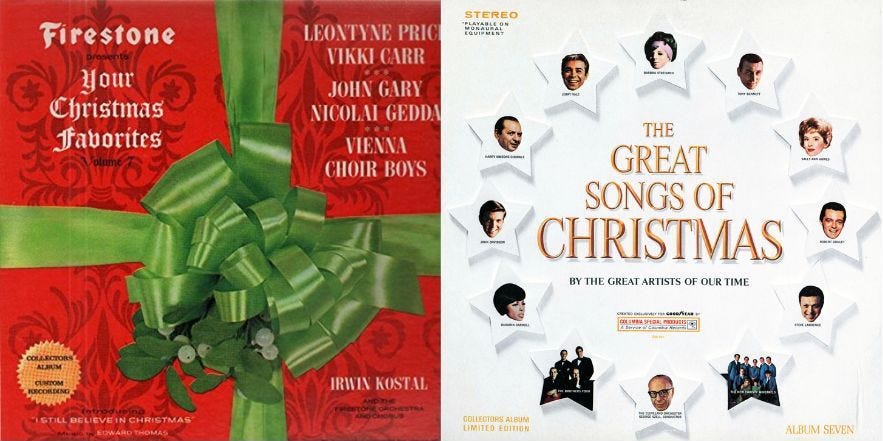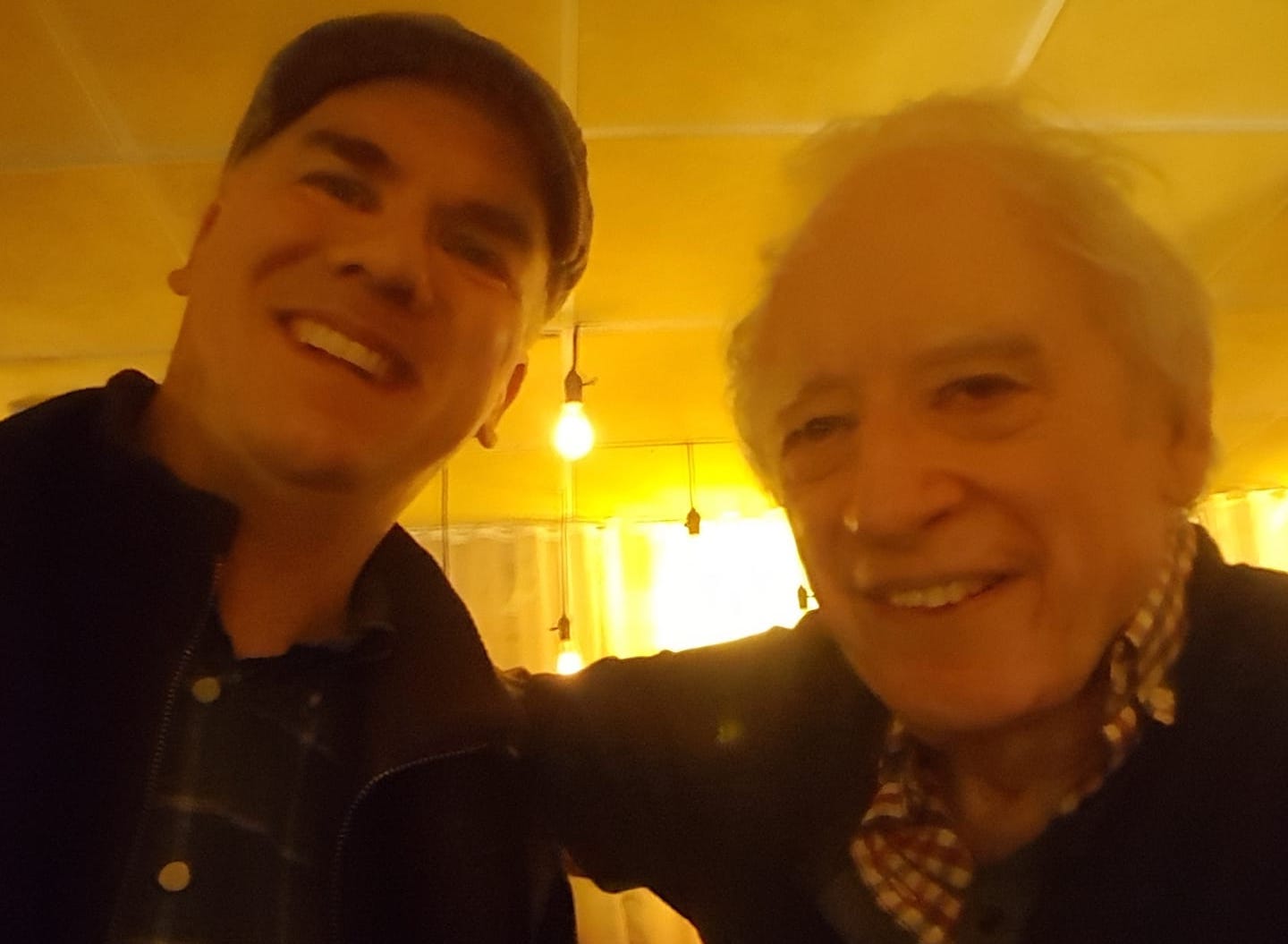[The second of two parts. In late 2018, my wife Tracey and her music-industry pal Dorf made my 2019 New Year’s resolutions for me. Part one was about Tracey’s resolution.]
So, Tracey’s ROMB (resolution on my behalf) was the whole daily-posting-on-Instagram thing. Dorf’s ROMB (that’s not going to catch on, is it) was for me to attend Jazz Congress, on January 7 and 8. It was a Monday and Tuesday, and January’s always pretty quiet, so it’s not like I was going to miss many or any gigs. But why am I doing this again? Oh… "stop asking that," again. Fine. Guess I’m going to New York.
I really didn’t know what to expect, or what I’d get out of it. The “networking” thing didn’t appeal to me; I only had a nebulous idea of what it involved, but it always sounded to me like door-to-door sales combined with a Toastmaster’s For Beginners event: awkwardly speaking to people who wish you wouldn’t. I couldn’t imagine enjoying it. (That quickly changed, but that's a whole other post.)
I arrived late Sunday for the Monday-Tuesday conference. The next morning after locking my wee room and finding a Dunkin’s along the way, I subway’d it to the conference. I aimed to be there an hour after it began, hoping the lines would be shorter at the registration desk. I needn’t have worried; musicians are often a morning-adverse lot, so the lines weren’t painfully long. A volunteer found my name on an iPad and handed me a heavily-branded Official Bag Of Stuff, including some CDs (still a thing in the jazz world) and an event schedule.
I got my lanyard, and wandered into a panel that seemed interesting. Three musicians in their thirties were discussing how to release an album in the era of digital. One suggested putting out a single a month, and then only releasing an album after you’d put out an album’s worth of singles. It stuck with me; it’s sort of what was normal until a few years before I was born. But now the idea was to get more shots at getting added to Spotify playlists, and not to sell more 45’s of Love Me Do. (“What’s a 45?” replied two-thirds of the folks in that room, probably.)

Afterward, I wandered out into the atrium to get a coffee. Within a few hours, I’d be a familiar face to the baristas, who gave me a cup and pointed me to the self-serve thermoses. Over the course of the conference, I’d wind up meeting several folks at the self-serve station, and I’ll get into that in another post; what happened more immediately was that I wandered over to a row of tables up against the atrium wall, near the entrance.
The tables were the exhibitors’ displays. There was exhibitors from some small record labels, a publicist, some concert presenters, and a couple of other music organizations. I made eye contact with a curly-haired, older fellow who was sitting behind one table, dabbing the coffee from his moustache, and raised my own coffee as a greeting.
“How’s it going?” I asked. On paper, it seems too casual a greeting for professional use, but I’ve been saying it for fifty-plus years. He wasn’t fazed by it.
“Good. How are you?” He was Ralph Lampkin, from South Bend, Indiana, and he was there representing a Chicago promoter and booking agency.
Ralph and I wound up chatting a while, and it turned out he knew a couple of Chicago-based musicians I’d met briefly in Toronto. South Bend is only ninety minutes from the much-larger Chicago, so Ralph commuted there a lot to see live music. He also produced some small concerts there, in both the jazz and musical theatre genres.
Other folks were approaching his table, picking up brochures and inquiring about the agency, so I moved on. I wound up connecting with some fellow Toronto folk; in fact, I probably met more Toronto musicians at that New York conference than I had in months back home. Dorf (who was working one of the exhibitor tables for a label) wound up arranging for the Torontonians to meet up for a dinner. It made for a thoroughly entertaining evening, at which I somehow acquired a short-lived nickname: Sir Harry Fishes. No elaborate story behind it. Something about anchovies.
On the second day of the conference, when I chatted with Ralph again, it somehow came up that he loved the music of Johnny Mathis. Now, that’s not a name that comes up much in jazz circles, but growing up in my house, Johnny Mathis’ voice was as familiar to me as my parents’. My mother had plenty of Johnny on vinyl, including all his Christmas records. And he was on the Firestone and Goodyear promotional Christmas albums that my dad brought home after getting the snow tires put on the car. (I’m not sure why we had all the albums from both companies, since the companies were competing for your business.)

Mom mostly listened to Johnny’s poppier albums, and it wasn’t until college that I discovered more of his recordings of jazz standards. When I tried out a piano in a Toronto piano store by playing Jerome Kern’s All The Things You Are, I mentioned to a staff member that I knew the song had an introductory verse in the musical but that I didn’t know how it went. He sat down and played it, and then told me he’d learned it off Johnny Mathis’ version. I tracked down Johnny’s version and was hooked.
So I shared all this with Ralph, who’d found an extra chair and had me sitting behind his table as though I’m a team member at the Chicago agency. He asks, have you seen the concert he recorded with a big band in Canada? I hadn’t. And now we’re hunched over his iPhone, sharing his earbuds and watching Johnny Mathis perform in Edmonton, Alberta in 1978, while everyone around us is watching Wynton Marsalis give a speech on the atrium’s stage. Despite the odd glance from better-behaved attendees, it was a lot of fun.
I connected with Ralph one more time as the conference wound down and the exhibitors began to pack up their brochures and displays. I’d mentioned that I’d been working on my piano/vocal performing, and he’d asked if I ever played in the US. I’d performed stateside plenty with Second City and for corporate events, but never on my own. In fact, as a pianist/vocalist, at that point I’d only performed at Toronto retirement homes.
“You know,” he said, “I book the live music for a place in South Bend. I could book you for that.” And nine months later, I made my US debut at The Chocolate Cafe in South Bend, Indiana.
It took some doing, as I’m Canadian, and while Americans can easily play Canadian gigs, the reverse isn’t true. I recently asked a US bassist how difficult it was for him to do a Canadian gig; he said he told the Canadian customs official “I’m playing a gig in Toronto” and they just replied “have a good gig. Next!” So I had to learn how to fill out a work visa application. Luckily, my friend Jill was working for the musicians’ union in the visa department, and kindly walked me through the process. And Ralph booked me for both October 2019 and April 2020, so I could make one visa (and one fee) last for a few months and not just one gig.
My October show at The Chocolate Cafe was for a small crowd but was a pleasure—and incredibly satisfying, knowing that I’d cleared the hurdle of a US performance. The work-visa process that had overwhelmed me was now familiar, and now I knew I could hold my own in front of a non-captive-retirement-home, free-range audience. Also: The Chocolate Cafe makes a hot chocolate that might be the best beverage known to humankind. It still lingers in my mind.
Ralph was out of town that weekend, so I didn’t see him at the gig. The following January, he was ill and missed the 2020 Jazz Congress conference, but insisted that while I was in NYC I go see the great actors Austin Pendleton and Barbara Bleier perform a cabaret in Greenwich Village; he was publicist for their shows. It was one of the best shows I’ve ever seen in my life. I met Austin after the show and we chatted about Ralph.

My April 2020 return performance in South Bend never happened due to Covid lockdowns. I stayed in touch with Ralph a bit via Facebook. But when things normalized, his live-music bookings didn’t return. And in 2023 I learned that he had passed away.
I’m glad to have met Ralph, and grateful for the opportunity he gave me. That relatively small gig really got the ball rolling for my piano/vocal shows, and the momentum carried over into my lockdown-live-streaming that opened so many doors for me. And when US opportunities arise now, a work-visa application is no big deal.
The US debut wouldn’t have happened if I had insisted on knowing “why would I attend Jazz Congress?” I just did it, didn’t ask why, and something cool happened as a result.
Also, Dorf’s ROMB contributed to Tracey’s ROMB: the trip to South Bend made for a lot of great Instagram content.
Plus: that hot chocolate. So, so good.







